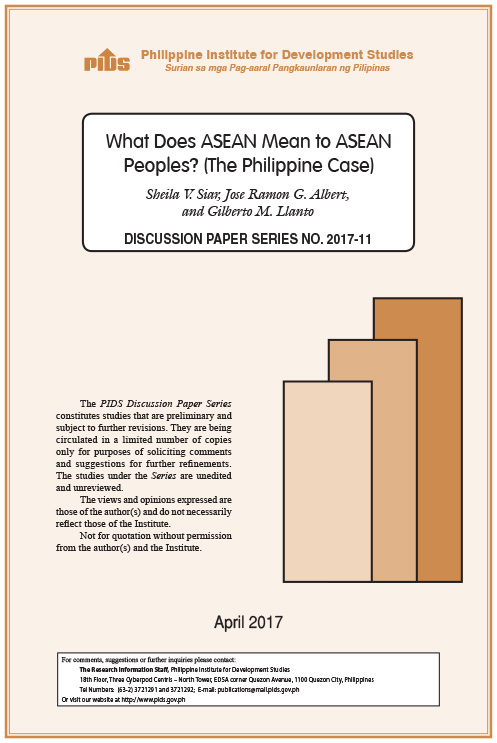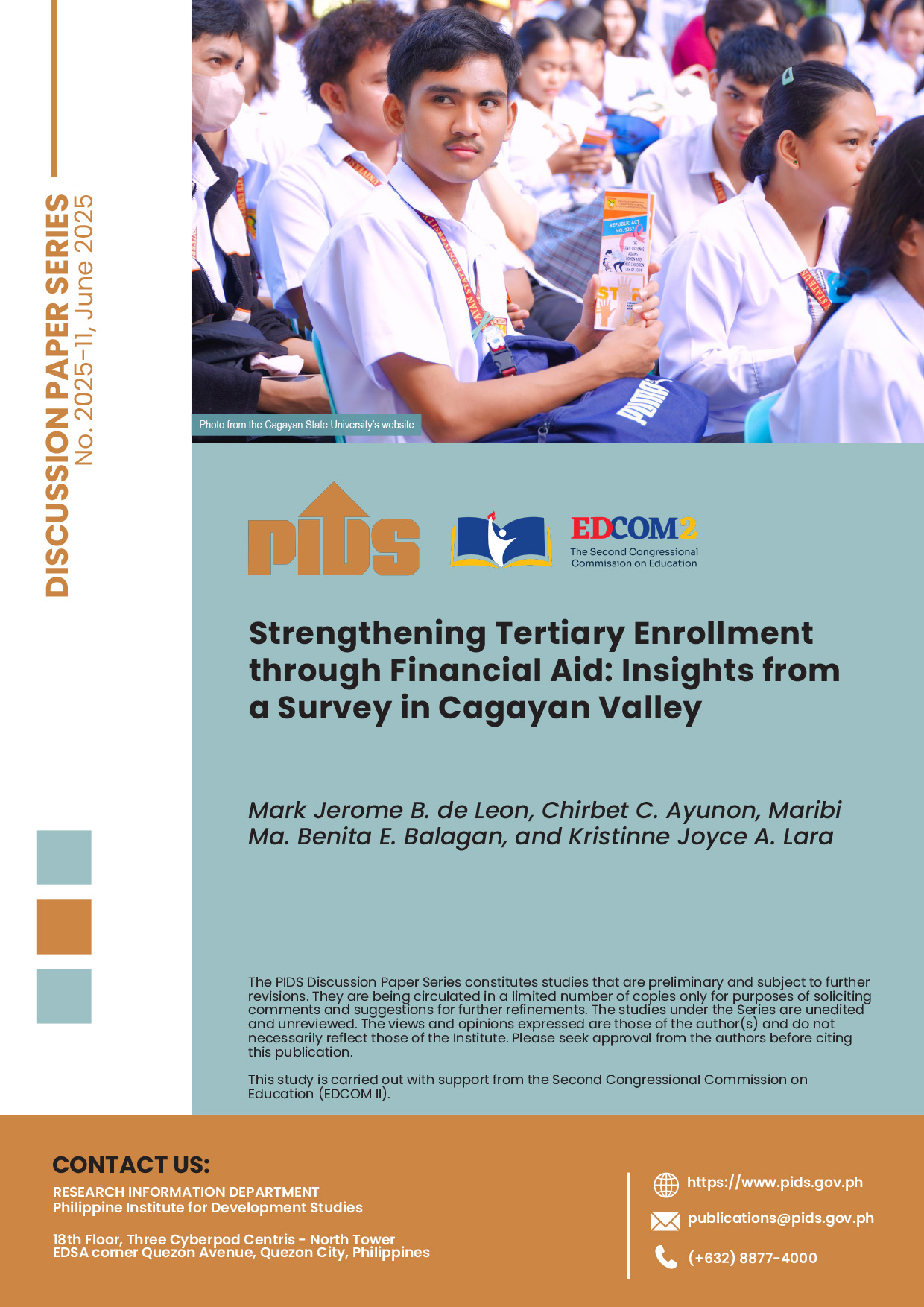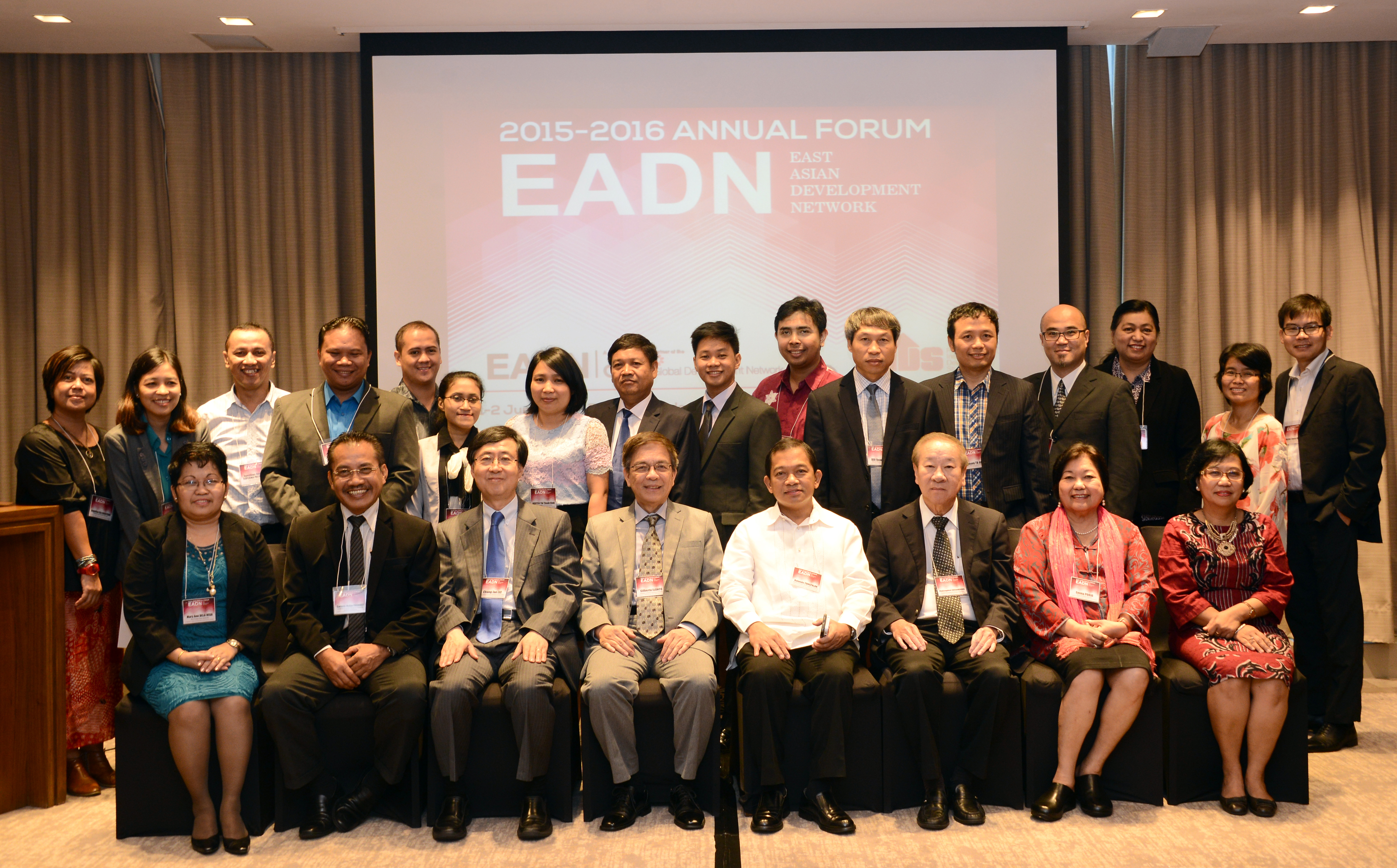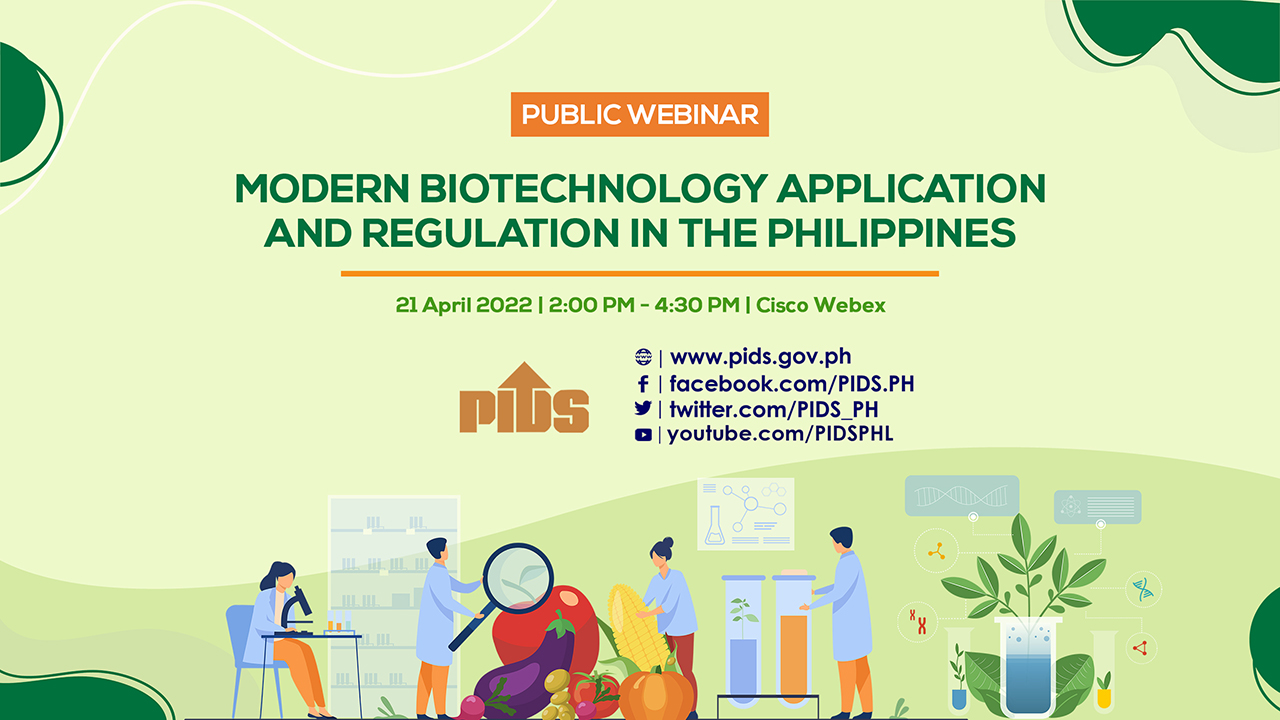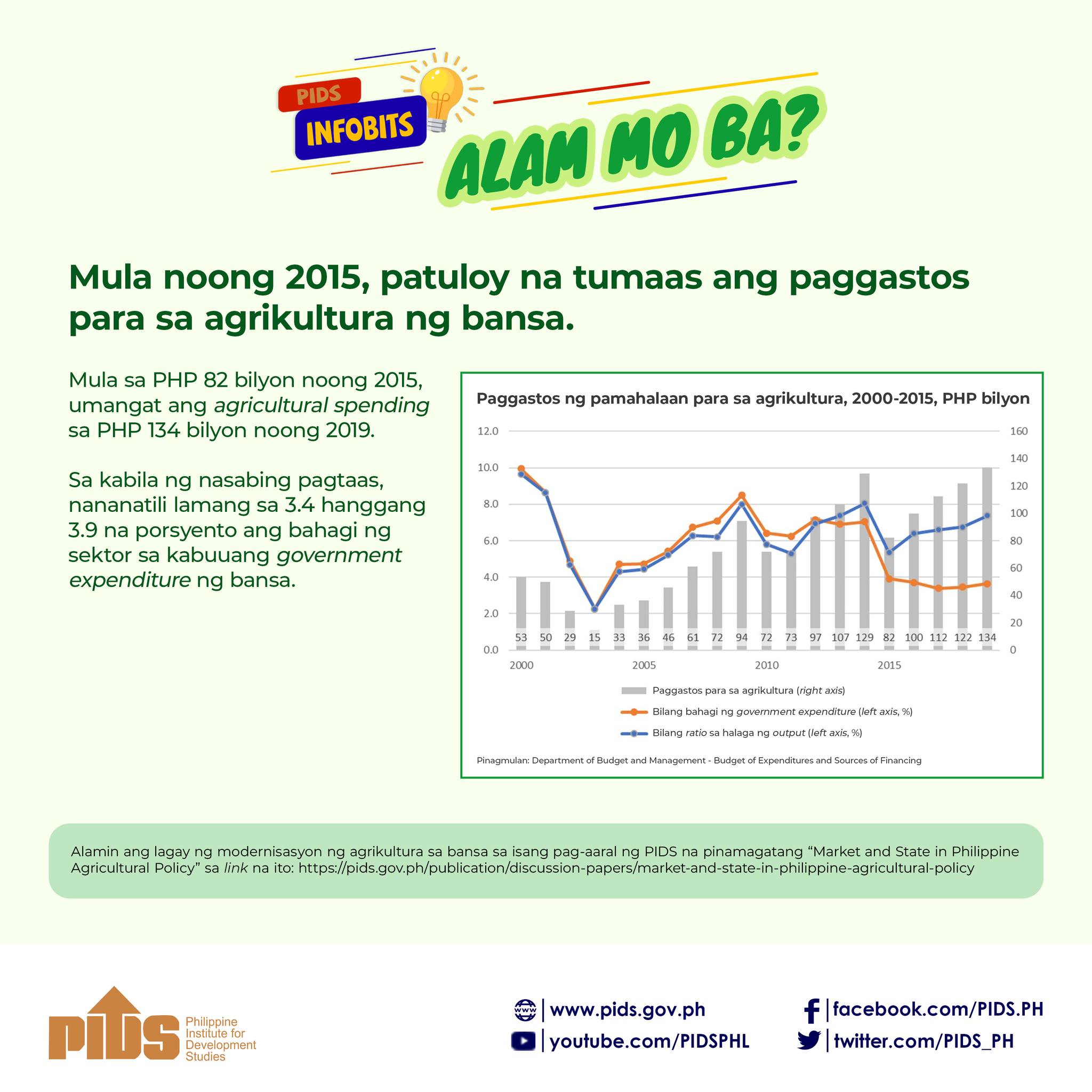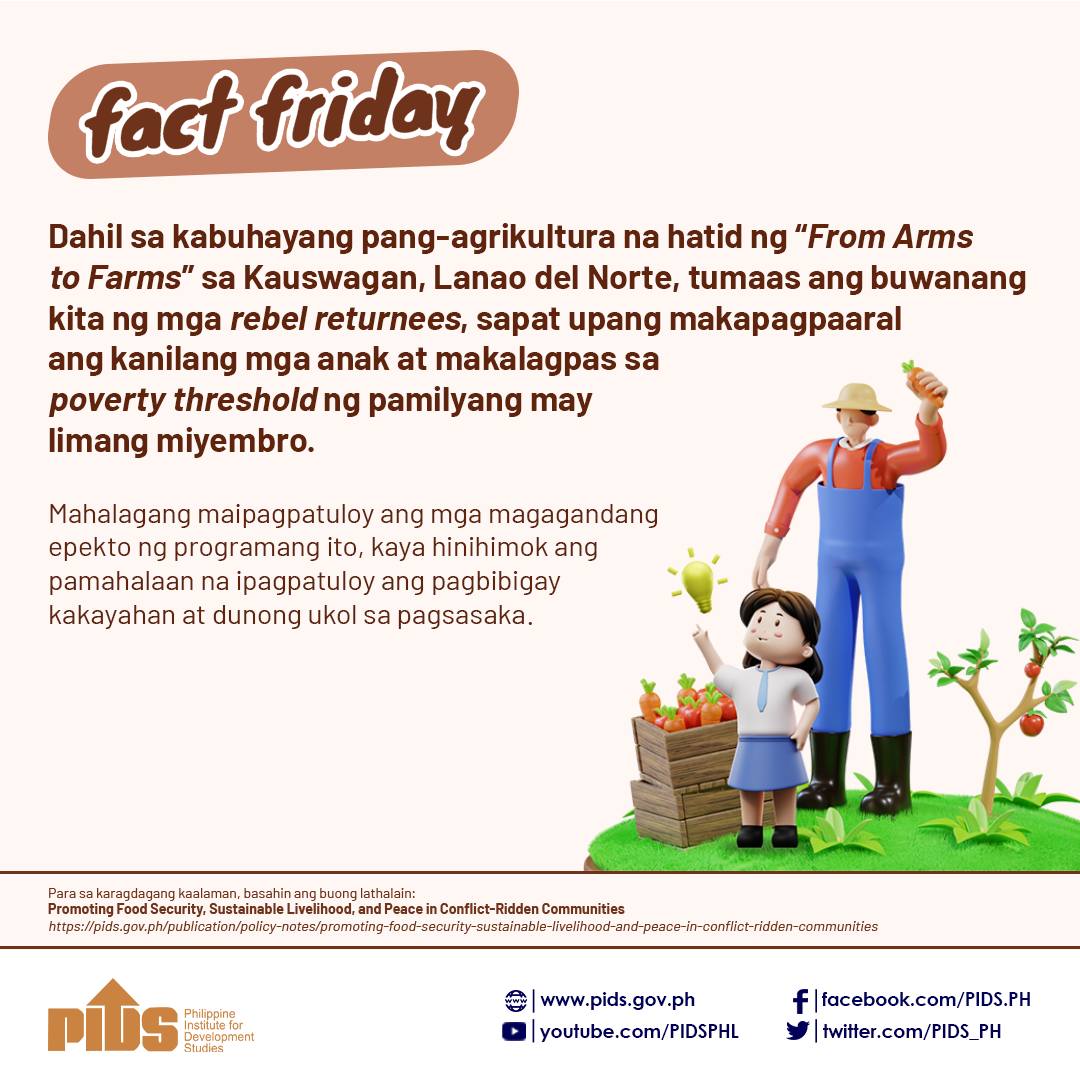The East Asian Development Network (EADN) held its annual forum on May 28 and 29, giving the podium to its young research grantees to elaborate on the progress of their individual work. Since 1998, the network has sought to develop the research capacity of participating institutions and individuals by providing the resources to carry out development-focused and policy-relevant research. The Philippines, on its fifth year as EADN Secretariat, welcomed research grantees and mentors from all over Asia, including Indonesia, Thailand, China, and Malaysia.
The focus of the research studies at the EADN forum this year spanned diverse development issues, among them agriculture, migration, human capital formation, and finance. This diversity, according to the welcome remarks of Philippine Institute for Development Studies (PIDS) President and EADN Chairman and Regional Coordinator Gilberto Llanto, “proves that there is still much to be explored in the field of development”.
At the threshold of regional economic integration, what cuts across these development issues is the opportunity for regional cooperation. Llanto added that EADN plays a "crucial role" in enabling the creation of well-informed policymaking. PIDS board member Atty. Raphael Perpetuo Lotilla delivered a timely keynote address to demonstrate the value of research in various development areas.
In particular, Lotilla highlighted the need to cooperate for the sustainable development of the seas of East Asia, with opportunities ranging from management, exploration, and exploitation of resources; preservation of the environment, and coordination regarding science and research. Majority of the public discourse focuses on the political aspects and territorial disputes, specifically when it comes to the South China Sea. But it is undeniable that everyone benefits from addressing its challenges, whether they may be environmental, social, or economic.
He said that the level of trust within the reason must be raised. To answer the sustainable needs of the people in the region, policymakers, aided by policy research institutes and networks like PIDS and EADN, must help identify areas of concern and opportunities for cooperation.
Fisheries and trade is one ideal area for cooperation. Depletion due to overfishing, destruction of habitat, and pollution threatens to damage the industry and contribute to the long-term breakdown of the ecosystem. A potential security issue could as well arise in the event that a plunge in fish and revenues for traditional fishermen pushes them to enter piracy or human trafficking chains. Coastal governments on an individual level, Lotilla warned, may not be able to address this alone. Everyone has a stake in protecting and promoting sustainable development of marine resources in the region.
The profile of research studies presented at the forum evoked the theme of Lotilla’s speech, with each one looking into development policy areas critical to the respective countries of the researchers. Each researcher was assigned a discussant to mentor them and provide guidance to mold their approach, improve their methodologies, and whittle the scope.
The EADN country coordinators included Dr. Sun Xuegong, Dr. Carunia Firdausy, and Dr. Siew Yean Tham. Dr. Mohamed Ariff , EADN representative to the Global Development Board of Directors, was also in attendance.
The cross-national discussion and exchange of expertise and insight ensured that each study received recommendations that encouraged the author to meet international standards and incorporate regional perspectives.
The focus of the research studies at the EADN forum this year spanned diverse development issues, among them agriculture, migration, human capital formation, and finance. This diversity, according to the welcome remarks of Philippine Institute for Development Studies (PIDS) President and EADN Chairman and Regional Coordinator Gilberto Llanto, “proves that there is still much to be explored in the field of development”.
At the threshold of regional economic integration, what cuts across these development issues is the opportunity for regional cooperation. Llanto added that EADN plays a "crucial role" in enabling the creation of well-informed policymaking. PIDS board member Atty. Raphael Perpetuo Lotilla delivered a timely keynote address to demonstrate the value of research in various development areas.
In particular, Lotilla highlighted the need to cooperate for the sustainable development of the seas of East Asia, with opportunities ranging from management, exploration, and exploitation of resources; preservation of the environment, and coordination regarding science and research. Majority of the public discourse focuses on the political aspects and territorial disputes, specifically when it comes to the South China Sea. But it is undeniable that everyone benefits from addressing its challenges, whether they may be environmental, social, or economic.
He said that the level of trust within the reason must be raised. To answer the sustainable needs of the people in the region, policymakers, aided by policy research institutes and networks like PIDS and EADN, must help identify areas of concern and opportunities for cooperation.
Fisheries and trade is one ideal area for cooperation. Depletion due to overfishing, destruction of habitat, and pollution threatens to damage the industry and contribute to the long-term breakdown of the ecosystem. A potential security issue could as well arise in the event that a plunge in fish and revenues for traditional fishermen pushes them to enter piracy or human trafficking chains. Coastal governments on an individual level, Lotilla warned, may not be able to address this alone. Everyone has a stake in protecting and promoting sustainable development of marine resources in the region.
The profile of research studies presented at the forum evoked the theme of Lotilla’s speech, with each one looking into development policy areas critical to the respective countries of the researchers. Each researcher was assigned a discussant to mentor them and provide guidance to mold their approach, improve their methodologies, and whittle the scope.
The EADN country coordinators included Dr. Sun Xuegong, Dr. Carunia Firdausy, and Dr. Siew Yean Tham. Dr. Mohamed Ariff , EADN representative to the Global Development Board of Directors, was also in attendance.
The cross-national discussion and exchange of expertise and insight ensured that each study received recommendations that encouraged the author to meet international standards and incorporate regional perspectives.

